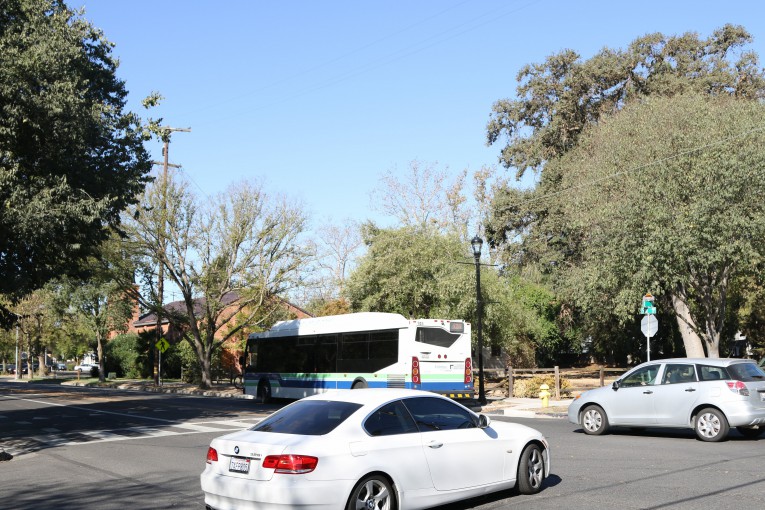
OAKLAND, CA – The Anti Police-Terror Project (APTP) here released a report last month, “Decarcerating Transportation: A Mobility Justice Framework,” calling for “ urgent reevaluation and change in the policies and practices related to mobility and transportation justice.”
The APTP, founded in Oakland in 2010, argues traffic stops encompass “a range of discriminatory practices and policies that disproportionately impact marginalized communities,” reported by the Decarcerating Transportation report.
The report, said APTP, aims to shine a light on what APTP claims as social disparities and racial profiling within the current traffic and public safety management, and alternatively provides a formative policy entitled, “Seven D’s of Mobility Justice.”
The Seven D’s of Mobility Justice provides a roadmap to decriminalize and promote equality among safety protocols within transportation, claims APTP.
James Birch, APTP’s deputy director, commented, “The ‘Decarcerating Transportation’ report is not just an academic text; it’s a rallying cry for all levels of society to implement changes that recognize and respect the right to safe and equitable access to transportation for Black and Brown communities. The framework within its pages honors a legacy of resistance, acknowledging the foundational work of freedom fighters like the Black Panther Party.”
APTP said the plan is designed “towards creating a justly accessible and safely navigable future for all communities.”
APTP’s Seven D’s of Mobility Justice in the report includes the first “D” of Mobility Justice, decriminalizing transportation. APTP urges evaluating and changing “the penal and criminal codes, governing mobility, encompassing, walking, biking, driving, and public transit.”
Additionally, APTP advocates limiting police encounters by restricting “law-enforcement authority to reduce escalated violence and racial bias.”
The second “D” of Mobility Justice includes divesting from incarceration and investing in decarceration, wrote APTP in its report, urging the removal of law enforcement transportation, and that “eliminating funding for law-enforcement approaches is demanded if current investments are inefficient.”
In this reinvestment, APTP believes the shift will yield results by allocating funding toward “jobs and infield structure, traffic management, enhancements, complete street initiatives, and public transit, areas with a labor shortage.”
The third “D” of Mobility Justice is, added APTP, development in community skills and resources…empowering communities to address these conflicts without a reliance on law enforcement will foster “self-sufficiency, enhancing community resilience, and reducing the potential for violence.”
APTP also advocates additional steps such as “insurance accessibility, such as providing childcare, lingual options, and compensation for people’s time.”
The fourth “D” is categorized by APTP as deciding with impacted people, and prioritizing those who have been impacted by these situations and put them in the center of the discussion as they may be able to identify gaps within planning and decision-making regarding the subject matter.
The fifth “D” of APTP refers to designing new cultural norms, and includes providing alternatives to “punitive measures“ that will in turn shift car culture and combat unnecessary “car usage, speeding, and the purchase of vehicles that disproportionately harm the environment solely due to their design.” This aims to foster a “safer and more compassionate society.”
The sixth “D” of Mobility Justice is defending individuals from carceral technologies, and, as ATPT states, demanding “transparency and accountability for technologies currently in use.”
ATPT’s final “D” refers to delineated guidelines for community oriented data collection, noting as a result of the surge in data collection regarding transportation technologies, guidelines are required to “clearly define the principles, methodologies, and ethical considerations covering data collection in the public and private sectors.”
The full report can be found here.